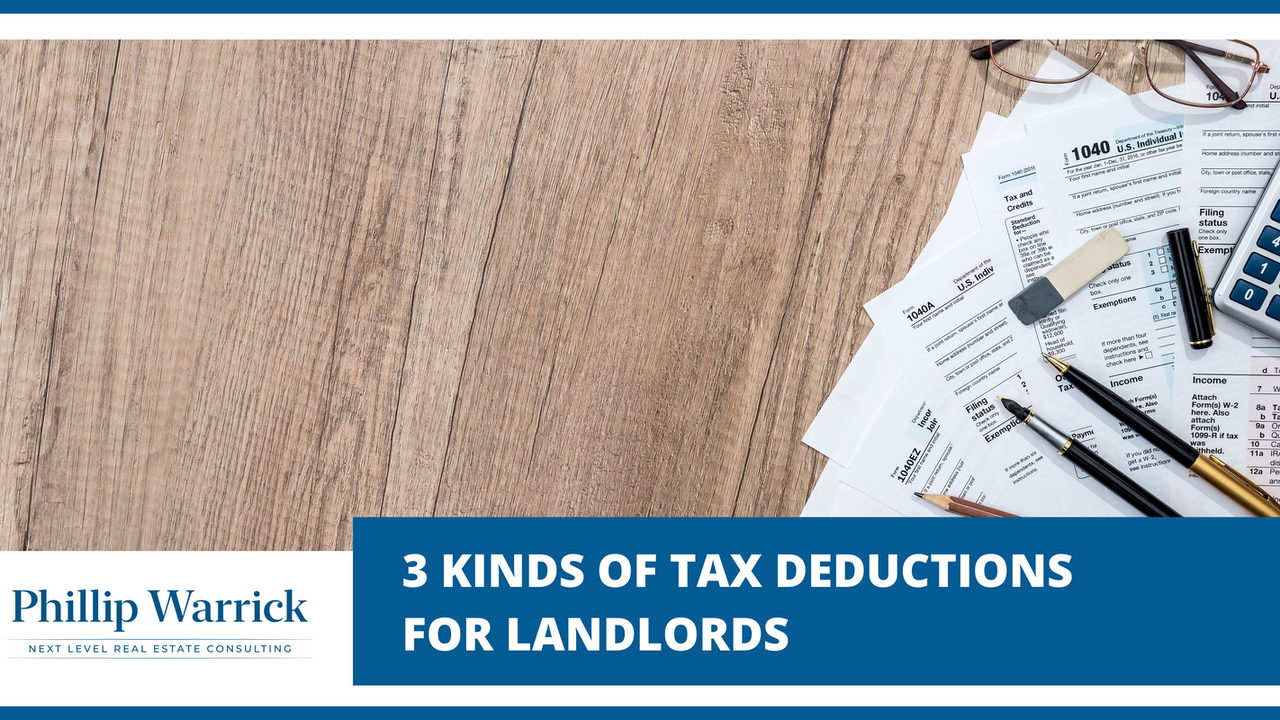3 Kinds of Tax Deductions for Landlords
Sep 28, 2021
Except for death and taxes, nothing in life is certain, according to Benjamin Franklin. However, on a more upbeat note, we can all count on tax deductions. Tax deductions can be significant for savvy landlords. Let's look at the tax deductions for business expenses, rental improvements, and pass-through businesses available to landlords.
Business Expense Tax Deductions
Landlords who keep meticulous financial records should be able to deduct business-related expenses such as:
- Advertising and Marketing Expenses: This includes paid listings, paid social ads, newspaper ads, etc.
- Maintenance and Repairs: Think of expenses such as mowing the lawn, HOA fees, smoke detector batteries, broken HVAC or plumbing.
- Insurance: Your landlord insurance policies are tax-deductible.
- Management Fees: For landlords who use a property manager or software, you can deduct the expense.
- Travel expenses: This is for out-of-state or road trip travel costs specifically to check on your rentals.
- Utilities: This includes electricity, gas, and sewage expenses- even if the tenant reimburses you.
- Meals- talk to your cpa about work related meals and deducting 100%
Rental Renovation and Improvement Deductions
There are two sections of the tax code that landlords should be aware of when making improvements to their rental properties:
- Section 197: Businesses can deduct the total purchase price of long-term personal property purchased or financed during the tax year under this tax code provision. Consider kitchen appliances, carpets, drapes, blinds, and lawnmowers, among other things.
- Bonus Depreciation: Depreciation is a tax deduction that allows businesses to spread out the cost of a long-term asset over the life of the asset, while bonus depreciation allows businesses to deduct a percentage of the cost of eligible purchases the year they acquire them. That percentage fluctuates, but from now until December 2022, it is 100%.
20% Pass-Through Deduction
Landlords who own their properties through pass-through entities such as LLCs, S-corps, and partnerships may be able to deduct up to 20% of their rental income, which could have a significant impact.
Did You Know?
- By using cost segregation, landlords can significantly boost the depreciation deductions they receive in the first few years of owning rental property.
- Careful planning can permit you to deduct, in a single year, the cost of improvements to rental property that you would otherwise have to deduct over 27.5 years.
- In some situations, you can rent out your holiday home tax-free.
- Most small landlords can deduct up to $25,000 in rental property losses each year.
- A special tax regulation allows some landlords to deduct 100% of their rental property losses every year, regardless of how large they are.
These matters are no joke when it comes to operating your rental business. So book a call with me to ask your serious questions, and I will help you go through with this one by one and connect you with a great CPA and Bookkeeper.

